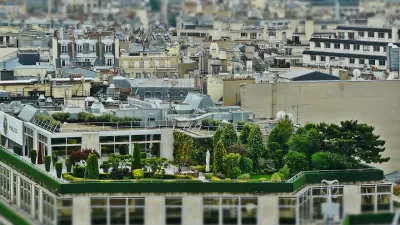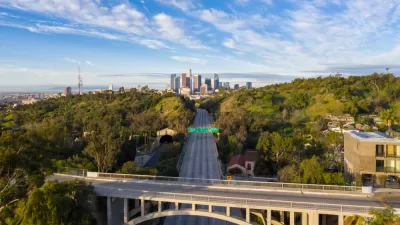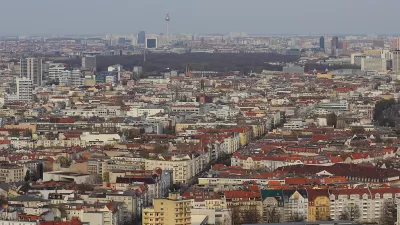The chief policy officer of Google's Sidewalk Labs proposes six first principles of urbanism to frame the potential impact of technology on urban environments.

Rohit T. Aggarwala, the Chief Policy Officer at Sidewalk Labs, has penned a list of "first principles of urbanism" that he intends to use to guide the deployment of technology in cities. The first principles, according to Aggarwala, "identify the essential efficiencies—and costs—of urban environments."
Before launching into the list of first principles, Aggarwala cautions against relying on "arguments for cities that are only true today because of current technology or institutions" and also against mistaking "preferences for intrinsic values."
Aggarwala's first principles are listed in three efficiencies and three costs. On the efficiencies side are resource conservation, greater asset utilization, and the prevalence of physical interactions. On the costs side are a reliance on central systems, a reliance on courtesy and trust, and the need for coordination.
Aggarwala's hope is for these first principles to "form a framework to help us evaluate how changes in technology might affect cities in a thoughtful and systematic way.
FULL STORY: The First Principles of Urbanism: Part I

Alabama: Trump Terminates Settlements for Black Communities Harmed By Raw Sewage
Trump deemed the landmark civil rights agreement “illegal DEI and environmental justice policy.”

Planetizen Federal Action Tracker
A weekly monitor of how Trump’s orders and actions are impacting planners and planning in America.

The 120 Year Old Tiny Home Villages That Sheltered San Francisco’s Earthquake Refugees
More than a century ago, San Francisco mobilized to house thousands of residents displaced by the 1906 earthquake. Could their strategy offer a model for the present?

In Both Crashes and Crime, Public Transportation is Far Safer than Driving
Contrary to popular assumptions, public transportation has far lower crash and crime rates than automobile travel. For safer communities, improve and encourage transit travel.

Report: Zoning Reforms Should Complement Nashville’s Ambitious Transit Plan
Without reform, restrictive zoning codes will limit the impact of the city’s planned transit expansion and could exclude some of the residents who depend on transit the most.

Judge Orders Release of Frozen IRA, IIJA Funding
The decision is a victory for environmental groups who charged that freezing funds for critical infrastructure and disaster response programs caused “real and irreparable harm” to communities.
Urban Design for Planners 1: Software Tools
This six-course series explores essential urban design concepts using open source software and equips planners with the tools they need to participate fully in the urban design process.
Planning for Universal Design
Learn the tools for implementing Universal Design in planning regulations.
Clanton & Associates, Inc.
Jessamine County Fiscal Court
Institute for Housing and Urban Development Studies (IHS)
City of Grandview
Harvard GSD Executive Education
Toledo-Lucas County Plan Commissions
Salt Lake City
NYU Wagner Graduate School of Public Service





























